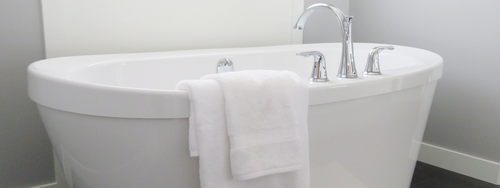Share:
Washing towels at high temperatures is often recommended to kill bacteria and remove odors. However, this practice can take a toll on the fabric's integrity. Scientific studies suggest that repeated washing at temperatures above 40°C can degrade the fibers of cotton towels, leading to a diminished lifespan and reduced softness. The heat can break down cotton fibers, causing them to become brittle and leading to a rougher texture over time. On the flip side, copper-infused towels, known for their antibacterial properties, offer a different narrative. The copper ions embedded in the fibers provide a self-sanitizing quality, which means these towels can maintain hygienic standards without the necessity of high-temperature washes.
Cleaning Copper-Infused Towels Without Hot Water
Copper-infused towels are designed to repel bacteria and odors, thus requiring less frequent and less intensive cleaning cycles. To clean these towels effectively without resorting to high temperatures, use a gentle, eco-friendly detergent in cool to warm water (around 30°C). This method ensures the longevity of the towel's antibacterial properties while preserving its fabric integrity. It's also recommended to air dry these towels, avoiding high heat from dryers.
Washing Frequency: Traditional vs. Copper-Infused Towels
Traditional cotton towels should ideally be washed after three to four uses to prevent bacterial buildup and odor. In contrast, copper-infused towels, with their inherent antimicrobial properties, can extend this period significantly. Although individual hygiene preferences play a role, it's generally acceptable to wash these towels less frequently, potentially after several weeks of use, depending on personal usage and environmental conditions.
Long-Term Feel and Durability
Over a six-month period, a noticeable difference can emerge between the feel and durability of traditional and copper-infused towels. Regular towels, especially those subjected to high-temperature washes, may become rougher and less absorbent due to fiber degradation. Conversely, copper-infused towels, requiring gentler washing conditions, tend to retain their softness and structural integrity better over time. This disparity underscores the long-term benefits of choosing materials designed for durability and lower maintenance.
Bacterial Removal Efficacy
While washing at high temperatures can effectively reduce bacterial presence on cotton towels, it's not a fail-safe method for achieving sterility. The efficacy depends on factors like the washing duration, detergent used, and the specific types of bacteria. Meanwhile, copper-infused towels offer a continuous antibacterial action, reducing microbial growth as a result of copper ions' natural properties, which disrupt bacterial cell walls and inhibit their growth.
Long-Term Cost Implications and Environmental Impact
Initial investments in copper-infused towels might be higher than regular cotton towels. However, considering their longer lifespan and reduced need for frequent washing at high temperatures, the cost-benefit ratio tilts in their favor over time. Moreover, the reduced washing frequency implies lower water and energy consumption, aligning with eco-friendly practices and contributing to environmental sustainability.
The Environmental Perspective
The environmental impact of laundering practices is significant. High-temperature washing and frequent use of dryers contribute to higher energy consumption and carbon emissions. By opting for towels that require less intensive care—like those infused with copper—consumers can play a part in reducing their ecological footprint. The longevity of these towels also means less frequent replacements, thereby contributing to waste reduction.
Conclusion
In the quest for hygienic, durable, and environmentally friendly towel options, the comparison between traditional and copper-infused towels reveals a clear preference for the latter. With the ability to maintain softness, integrity, and antibacterial properties without the need for high-temperature washing, copper-infused towels stand out as a smart choice for the conscientious consumer. Embracing such innovations in textile technology not only elevates our home hygiene practices but also aligns with a broader commitment to environmental stewardship.
References
To substantiate the claims and insights presented in this article, the following scientific and industry resources can be consulted:
- "Impact of Laundry Practices on Textile Durability" - Textile Research Journal.
- "Antimicrobial Properties of Copper and Its Alloys" - Applied Microbiology and Biotechnology.
- "Environmental Impact of Domestic Laundry Processes" - Environmental Science & Technology.
- "Copper as an Antimicrobial Agent: Recent Advances" - Biomaterials Research.



